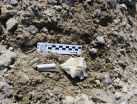(Press-News.org) For over a century, nitroglycerin has been used medically - particularly in the treatment of angina, or chest pain. It is a safe, cheap and effective treatment. Now, according to the latest study in ecancermedicalscience, researchers find that nitroglycerin is the latest in a series of medicines that could be repurposed to treat cancer.
The Repurposing Drugs in Oncology (ReDO) project, an international collaboration between the Anticancer Fund, Belgium, and US based GlobalCures, finds that existing and widely-used non-cancer drugs may represent a relatively untapped source of novel therapies for cancer.
Treatment failures for many cancers have been attributed to tumour hypoxia, or the lack of oxygen inside the tumour environment, explains study author Vidula Sukhatme, founder of GlobalCures. The stifling conditions make it difficult to penetrate the tumour with treatments.
"Any intervention that improves tumour oxygenation could improve radiation and chemotherapy outcomes," Sukhatme says.
"Nitroglycerin is one such agent," she explains. "It's immediately available, inexpensive and relatively non-toxic. It would be a shame to ignore its potential for patient benefit just because it is an old drug and has multiple mechanisms of action."
"In addition to tackling tumour hypoxia, nitroglycerin has excellent potential for improving the delivery of anticancer drugs," adds study author Pan Pantziarka, PhD, member of the ReDO project and the Anticancer Fund.
"One of the nicest things about nitroglycerin is the method of delivery - transdermal patches, which mean that patients may be able to get additional benefit from their existing treatments without having to take more tablets or intravenous medicines."
Nitroglycerin has had a long history of being put to unusual uses. Over a hundred years ago, the scientist who invented dynamite - an explosive based on nitroglycerin - regretted the destruction his creation had wreaked. Thus, Alfred Nobel sought to balance the history books by repurposing his fortune, and founded the Nobel Prize to reward humanity's highest achievements.
The ReDO researchers see a clear call to action: support and interest is needed to help nitroglycerin gain ground as an anti-cancer agent. But one thing is already sure - Alfred Nobel would be deeply proud of nitroglycerin's latest noble cause.
INFORMATION:
Reference:
Sukhatme Vidula, Bouche Gauthier, Meheus Lydie, Sukhatme Vikas P and Pantziarka Pan (2015) Repurposing Drugs in Oncology (ReDO)--nitroglycerin as an anti-cancer agent ecancer 9 568 DOI: 10.3332/ecancer.2015.568
Read the article for free: http://ecancer.org/journal/9/568-repurposing-drugs-in-oncology-redo-nitroglycerin-as-an-anti-cancer-agent.php
ecancermedicalscience is the open-access cancer journal of the OECI and the IEOl, accepting submissions in all areas related to cancer research. http://ecancer.org/journal/journal.php
Physicists at the University of Basel succeed in synthesizing boron-doped graphene nanoribbons and characterizing their structural, electronic and chemical properties. The modified material could potentially be used as a sensor for the ecologically damaging nitrogen oxides, scientists report in the latest issue of Nature Communications.
Graphene is one of the most promising materials for improving electronic devices. The two-dimensional carbon sheet exhibits high electron mobility and accordingly has excellent conductivity. Other than usual semiconductors, the material ...
When they're not being the stars of various animated movies, penguins are playing an important role in evolutionary studies. Penguins are unique among modern birds in that they 'fly' through the water. Although flightless in air, penguins have a number of adaptations which allow them glide effortlessly through the water. And some of these adaptations are in an unlikely part of their anatomy - their brains. Recent finds of fossil penguins from 35 million year old sediments in Antarctica have begun to shed light on the changes in penguin brains that accompanied their ...
More than a cause of a simple infection, viruses are often involved in the development of serious diseases. Such is the case with liver cancer, which often develops in an organ that has been weakened by hepatitis B or C virus. Researchers at Inserm, the Paris Public Hospitals (AP-HP), Paris Descartes University, Paris 13 University (USPC), and Paris Diderot University have just identified the role of a new virus, hitherto unsuspected, in the occurrence of a rare type of liver cancer.
This study, based on follow-up and observation of 193 patients, is published in the 24 ...
Consumers aren't embracing electric cars and trucks, partly due to the dearth of charging stations required to keep them moving. Even the conservation-minded are hesitant to go electric in some states because, studies show, if fossil fuels generate the electricity, the car is no greener than one powered with an efficient gasoline.
Charging cars by solar cell would appear to be the answer. But most cells fail to meet the power requirements needed to directly charge lithium-ion batteries used in today's all-electric and plug-in hybrid electric vehicles.
Researchers at ...
New research published in Acta Obstetricia et Gynecologica Scandinavica, a journal of the Nordic Federation of Societies of Obstetrics and Gynecology, found that pregnant women in Sweden had inadequate levels of iodine in their diets. Proper iodine nutrition is necessary for neurological development of the fetus.
Iodine is an element that is involved in the production of thyroid hormones. Pregnant and breastfeeding women need about 50% more iodine in the diets, and WHO recommends a total daily iodine intake of 250 μg/d for pregnant and lactating women. Medical evidence ...
Probiotics show no benefit for preventing or eliminating gastrointestinal colonization with drug-resistant organisms in patients in the intensive care unit compared to standard care, according to new research published online today in Infection Control & Hospital Epidemiology, the journal of the Society for Healthcare Epidemiology of America.
"Our research suggests that probiotics do not help prevent gastrointestinal colonization with multidrug-resistant organisms in critically ill patients," said Jennie H. Kwon, DO, lead author of the study.
This prospective, randomized ...
August 27, 2015 - Do you have problems with dry eyes? If so, you're not alone--it's one of the most common reasons for patient visits to eye care professionals. Recent years have seen significant progress in management of patients with dry eyes, according to the September special issue of Optometry and Vision Science, official journal of the American Academy of Optometry. The journal is published by Wolters Kluwer.
"There has been a growing interest among clinicians and patients on treatment and management and origins of the signs and symptoms of dry eye," comments Anthony ...
This news release is available in French.
Not even close to every person who faces challenges or lives with severe depression commits suicide. Some people are more vulnerable than others.
A series of studies has shown that the way in which a person makes decisions is among the main factors that determines whether that person is protected from or vulnerable to suicide. High-risk decision-making was prevalent among many parents of individuals who committed suicide, which may serve to explain its apparent "inheritability".
Dr. Fabrice Jollant, Assistant Professor ...
While most primary care physicians responding to a survey taken in late 2014 and early 2015 expressed confidence in their ability to identify potential cases of Ebola and communicate Ebola risks to their patients, only 50 to 70 percent of them gave answers that fit with CDC guidelines when asked how they would care for hypothetical patients who might have been exposed to Ebola. In addition, those who were least likely to encounter an Ebola patient - based on their location and characteristics of their patients - were most likely to choose overly intense management of patients ...
Knut, the famous polar bear of the Berlin Zoological Garden (Germany) died of encephalitis, as diagnosed soon after his death. However, the cause of his disease has remained elusive until now. A team of scientists from the German Center for Neurodegenerative Diseases (DZNE), the Leibniz Institute for Zoo and Wildlife Research (IZW) and the Charite - Universitaetsmedizin Berlin has now solved the case: The polar bear suffered from an autoimmune disease of the brain. This non-infectious illness is called "anti-NMDA receptor encephalitis", with symptoms in human patients similar ...

